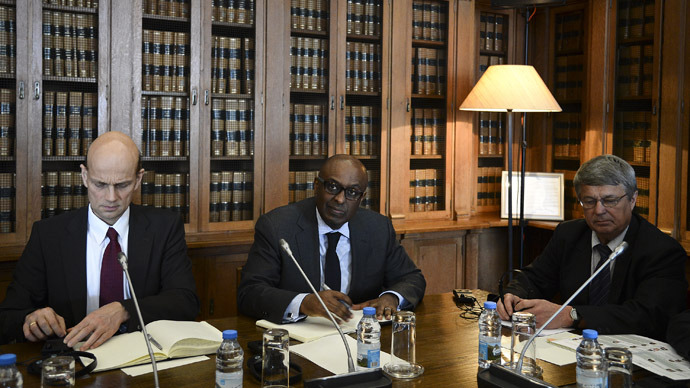‘Troika has no legitimacy to make decisions for national states’

The EU is first of all a union of nation states and the countries’ domestic issues should be solved only by democratically elected governments, Dr. Frauke Petry, a spokesperson for the anti-EU party Alternative for Germany has told RT.
In this sense the Troika has no right to decide the fate of such
troubled countries as Greece or Cyprus.
RT:Greece is again turning to Berlin for some cash. It wants to hold Germany to a promise it made to stump up reparations dating back to WWII. But Berlin, which has already provided the vast majority of the 240 billion euro rescue package given to Athens, is refusing to talk about it. So why isn't Berlin even ready to discuss the issue?
Frauke Petry: We don’t comment on what the current government does or says because it’s first of all their business and we are not in the government right now. But I personally think that we should keep apart the two questions – rescuing the Eurozone and going back to WWII problems.
RT:Greece needs this money now, so why shouldn't Athens demand it?
FP: I haven’t heard the question being put like this, but again I think we shouldn’t mix up the two completely different issues. I think the problems of Athens should be solved on another political basis.
RT:That’s certain, but the country is getting more and more desperate and looking for more extreme solutions.
FP: Our government says that we need the euro to keep Europe together. But looking at the Greek example we can see exactly the contrary – the euro tears Europe as a union of nation states apart. This is what we don’t want to see happening. That is why our party says that we need to get rid of the euro.
RT:New data shows public confidence in the European Union has fallen to historically low levels in the six biggest EU countries. What is next for the bloc?
FP: I don’t even want to imagine what is next. While the politicians say the Eurozone is still stable but these numbers just show us it is not at all. If you look at the unemployment rates in southern European countries you will find that there are lots of problems, which in the end will sort of turn the nations against each other instead of working together. This is why we say the euro experiment should be stopped as quickly as possible but in a controlled manner in order to avoid more complications.
RT:Many Europeans hold a grudge against the European bodies, wider known as the Troika, for what is seen as a poor response to the crisis. What is your take on what they've done? Should the Troika have decision making powers taken away?
FP: No, it shouldn’t at all. Europe is a union of nation states. We know that the European Commission is not a democratically elected body. You can’t expect the Troika, which is not a democratically elected body, to decide important issues of national states. I understand very well why the Greek people have problems accepting the proposal of the Troika because nation states should be run by elected governments.
The statements, views and opinions expressed in this column are solely those of the author and do not necessarily represent those of RT.












